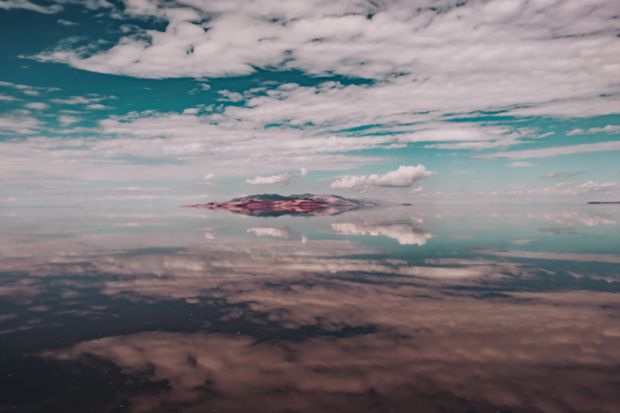Proposals to incorporate traditional knowledge in science curricula need “a lot more reflection”, with nobody excluded from the conversation, according to a New Zealand chemist.
Paul Kilmartin, a professor at the University of Auckland, said educators needed to proceed “much more carefully” in introducing concepts like mauri, a Māori term meaning “vital essence” or “life force”, into disciplines such as chemistry.
He cited a proposal to embed the concept in the high school chemistry and biology curriculum. “All particles have their own mauri and presence as part of a larger whole,” a Ministry of Education guidance document explains. “When a substance is burnt or dissolved the particles remain, with their own mauri.”
Professor Kilmartin, who has Māori ancestry, supported the concept of mauri as a reflection of ecosystem health or the “life-supporting capacity” of rivers. But he believed any interpretation that equated mauri with chemical properties, or as “the binding force between the physical and the spiritual”, had no place in the chemistry curriculum.
“I would want to ask who discovered this binding force,” he told an Auckland School of Chemical Sciences seminar. “What evidence was involved in its discovery? If this binding force is real, then…it needs to be in the chemistry syllabus of every country, not just in New Zealand.”
Professor Kilmartin studied theology and spent 11 years in the Marist order before undertaking a PhD in analytical chemistry in the 1990s. He does not consider himself Māori, because he was not raised in a Māori environment, but identifies as Ngāi Tahu – the principal tribe of the South Island – and has considerable knowledge of its history, culture and land claims.
He said mātauranga Māori, or Māori knowledge, had much to offer science. “There’s some very interesting examples to include in chemistry lectures such as Māori dyes, foods and chemicals from medicinal plants and sea creatures, both for illustrative purposes and maybe for in-depth consideration in some courses.”
But he questioned whether mātauranga Māori should be given “equal status” in university courses, as proposed in high schools, or whether New Zealand’s seminal Treaty of Waitangi required academics to spend 50 per cent of chemistry lectures teaching indigenous knowledge.
And he rejected any suggestion that Māori alone had “the right to speak on these issues”, saying that non-indigenous and overseas-born New Zealanders were all “worth hearing from”. Outsiders can bring “a wealth of experience and insights…and some international benchmarking”, he said. “We should all be able to join in the conversation.”
The webinar heard that this was not necessarily the case. “A lot of us don’t feel high authority to speak and we are very nervous about putting forward objections to things that scientifically seem extremely challenging,” a fellow academic said. “If…only people with certain backgrounds are allowed to speak on something, you will get objections suppressed.”
But a colleague said the group seemed resolved to oppose the incorporation of indigenous knowledge without having “any real knowledge” about it, focusing on a spiritual aspect of mātauranga Māori while overlooking its scientific approach to animal husbandry, navigation, pesticides and medicine. People with expertise in these things could have helped turn the seminar into an “actual conversation”.
The university has pledged to thrash out such matters in a symposium early this year. A spokeswoman said a date would be set after Auckland’s current Covid-19 outbreak had receded.
Register to continue
Why register?
- Registration is free and only takes a moment
- Once registered, you can read 3 articles a month
- Sign up for our newsletter
Subscribe
Or subscribe for unlimited access to:
- Unlimited access to news, views, insights & reviews
- Digital editions
- Digital access to THE’s university and college rankings analysis
Already registered or a current subscriber? Login









